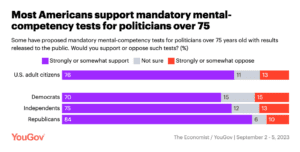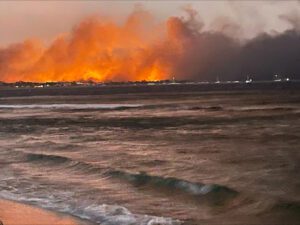
The summer of 2023 saw record-breaking temperatures across the United States and a global average temperature hotter than any time in the past 120,000 years.1 Along with the heat, regions across the globe—including 33 U.S. states—are experiencing drought conditions.2 The combination of severe heat and drought creates ideal conditions for wildfires.
In June and July, nearly 70 million people across 32 states were impacted by smoke from Canadian wildfires.3 For many people, particularly those living on the East Coast, this marked the first time they had ever experienced the smoke, smog, and hazardous air quality associated with wildfires. Meanwhile, states like California experience recurring wildfires each year. Historically, “wildfire season” tended to last from July until October, but perennial drought conditions have placed these states at risk year-round.4
Most recently, Hawaii suffered a devastating wildfire on the island of Maui. Centered in the town of Lahaina, the fire broke out on August 8 and has seen the destruction of 80 percent of the town and the death of at least 115 people with hundreds still missing.5 Some climate scientists had warned of a strong potential for wildfire on Maui. They also suggest that over half of all addresses in the United States are at risk for wildfire.6
The harrowing climate conditions of the summer have led some Americans to ask how the government will respond now and, with a presidential election a little over a year away, how it will aim to address these issues going forward.
READ: “July 2023 is Hottest Month Ever Recorded on Earth,” from Scientific American
The Biden Administration’s Response and Policy
The immediate climate crisis response to the Maui wildfire saw thousands of federal aid workers deployed to the island to provide medical, food, and housing relief to those impacted by the fire. However, with wildfires becoming a recurring threat for large swathes of the country, President Joe Biden’s administration has attempted to address the issue since its earliest days.7 Through directives to executive agencies, such as the Federal Emergency Management Agency (FEMA), the Department of the Interior, and the Department of Energy, as well as congressional legislation, much of the administration’s strategy has focused on the recruitment and training of firefighters and efforts to make forests more “resilient and fire adaptive.”8 These measures include weakening future fires by cutting down trees, removing underbrush, and holding controlled burns which are intended to clear away extremely dense forests before uncontrolled fires can start.
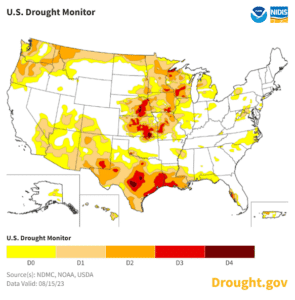 Republican Candidates Weigh In
Republican Candidates Weigh In
Republican officials immediately criticized President Biden for what they judged to be a lack of urgency in visiting the site of the Maui fire.9 In terms of addressing climate change and natural disasters more broadly, the most significant measure put forward by Republican leadership in Congress has been to join a global effort to plant one trillion trees to capture carbon from the atmosphere and to pass the Lower Energy Costs Act.10 The latter would aim to make U.S.-based fossil fuels cheaper to use. Although these sources still add to global emissions, Republicans leaders have argued that the act would reduce overall emissions because foreign energy producers use less efficient methods, thus producing more greenhouse gases.11
As for the Republican candidates currently vying for the 2024 presidential nomination, the approach to climate change policies are mixed. The current frontrunner, former President Donald Trump, reversed many climate-oriented policies during his administration and dismisses the threat of climate change. Florida Governor Ron DeSantis takes an adaptive approach, aiming to strengthen infrastructure against natural disasters but denies the threat of climate change itself. Senator Tim Scott (R-S.C.) and former Ambassador to the United Nations Nikki Haley both acknowledge the existence of climate change but do not prioritize it as an imminent threat to the extent that many Democrats do.12 Businessman Vivek Ramaswamy denies climate science as a “climate cult” and has committed to expanding the United States’ use of fossil fuels.13
What Do Climate Scientists Say?
In general, climate scientists find the climate change responses and approaches of both the Biden administration and Republican candidates to be insufficient. Carbon recapture through reforestation, like the plan put forward by Republican leadership, has thus far had little impact on carbon emissions and will likely do little to prevent the heat waves and droughts which can either cause or worsen natural disasters like wildfires, famines, and disease.14 These scientists continue to emphasize that the Biden administration and any potential Republican administration must put their greatest efforts toward reducing carbon emissions, particularly in the industrial and power-producing sectors.15 While the Biden administration did include emission-reducing provisions in the Inflation Reduction Act, these policies would reduce emissions by 40 percent in the next decade. Climate scientists say this goal falls short of the 50 percent reduction needed in the same time frame, and far short of a total elimination of carbon emissions by 2050.16
Discussion Questions
- Do you feel that addressing climate change and natural disasters should be a top priority of the U.S. government?
- What are the main obstacles you feel exist to addressing climate change? Are they mostly political or do you think there are other challenges?
- How do you think the United States can best strike a balance between meeting its energy and economic needs and combating climate change?
Related Posts
As always, we encourage you to join the discussion with your comments or questions below.
Sources
[1] https://www.scientificamerican.com/article/july-2023-is-hottest-month-ever-recorded-on-earth/
[2] https://www.drought.gov/current-conditions
[3] https://www.nytimes.com/2023/07/17/us/wildfire-smoke-canada-ny-air-quality.html
[4] https://www.nytimes.com/2023/07/20/us/california-wildfire-season.html
[6] https://www.nytimes.com/2023/08/21/us/maui-wildfire-response.html
[7] https://www.whitehouse.gov/briefing-room/statements-releases/2022/07/28/fact-sheet-the-biden-harris-administration-continues-efforts-to-address-growing-wildfire-threat/
[8] https://www.nytimes.com/2022/01/19/climate/biden-administration-wildfire-plan.html
[9] https://www.nbcnews.com/politics/white-house/biden-maui-fires-rcna99895
[10] https://www.washingtonpost.com/climate-environment/2023/08/02/trillion-trees-republicans-climate/
[11] https://www.pbs.org/newshour/politics/house-republicans-propose-ambitious-reforestation-plan-in-response-to-climate-change
[12] https://www.nytimes.com/interactive/2023/08/18/us/politics/republican-candidates-2024-climate.html
[13] Ibid.
[14] https://www.washingtonpost.com/climate-environment/2023/08/02/trillion-trees-republicans-climate/
[15] https://www.pbs.org/newshour/politics/house-republicans-propose-ambitious-reforestation-plan-in-response-to-climate-change
[16] Ibid.
 How has the “American Dream” changed over time? In September, the Sine Institute of Policy and Politics at American University released the results of a survey of Americans between the ages of 18 and 34. The poll, which was conducted in partnership with Close Up, the Generation Lab, and the Millennial Action Project, explored “what the American Dream actually means for young Americans, who are trying to sort through the churning dynamics shaping their lives, including: spiraling technological innovation, major economic transitions, changing attitudes about social justice, and what constitutes a good, or ‘successful,’ life after a devastating global pandemic with profound impacts on their physical and mental health, the extent of which is still unknown.”
How has the “American Dream” changed over time? In September, the Sine Institute of Policy and Politics at American University released the results of a survey of Americans between the ages of 18 and 34. The poll, which was conducted in partnership with Close Up, the Generation Lab, and the Millennial Action Project, explored “what the American Dream actually means for young Americans, who are trying to sort through the churning dynamics shaping their lives, including: spiraling technological innovation, major economic transitions, changing attitudes about social justice, and what constitutes a good, or ‘successful,’ life after a devastating global pandemic with profound impacts on their physical and mental health, the extent of which is still unknown.”

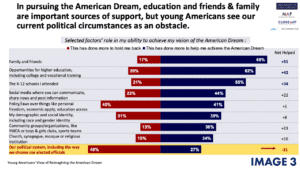

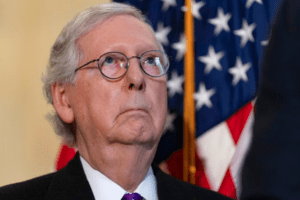 Several recent incidents have caused the public, members of the media, and some elected officials to raise alarm bells about the advanced age of several government officials. President Joe Biden (age 80),1 Senate Minority Leader Mitch McConnell (R-Ky.; age 81),2 and Senator Dianne Feinstein (D-Calif.; age 90)3 have all had moments in which they appeared confused, stammered, or in some way appeared to be not in control of their faculties. Nineteen members of Congress are at least 80 years old and the median age in the Senate is 65.4 Additionally, both President Biden and former President Donald Trump—the current frontrunners to be their parties’ presidential nominee in 2024—would be the oldest president ever elected.5
Several recent incidents have caused the public, members of the media, and some elected officials to raise alarm bells about the advanced age of several government officials. President Joe Biden (age 80),1 Senate Minority Leader Mitch McConnell (R-Ky.; age 81),2 and Senator Dianne Feinstein (D-Calif.; age 90)3 have all had moments in which they appeared confused, stammered, or in some way appeared to be not in control of their faculties. Nineteen members of Congress are at least 80 years old and the median age in the Senate is 65.4 Additionally, both President Biden and former President Donald Trump—the current frontrunners to be their parties’ presidential nominee in 2024—would be the oldest president ever elected.5